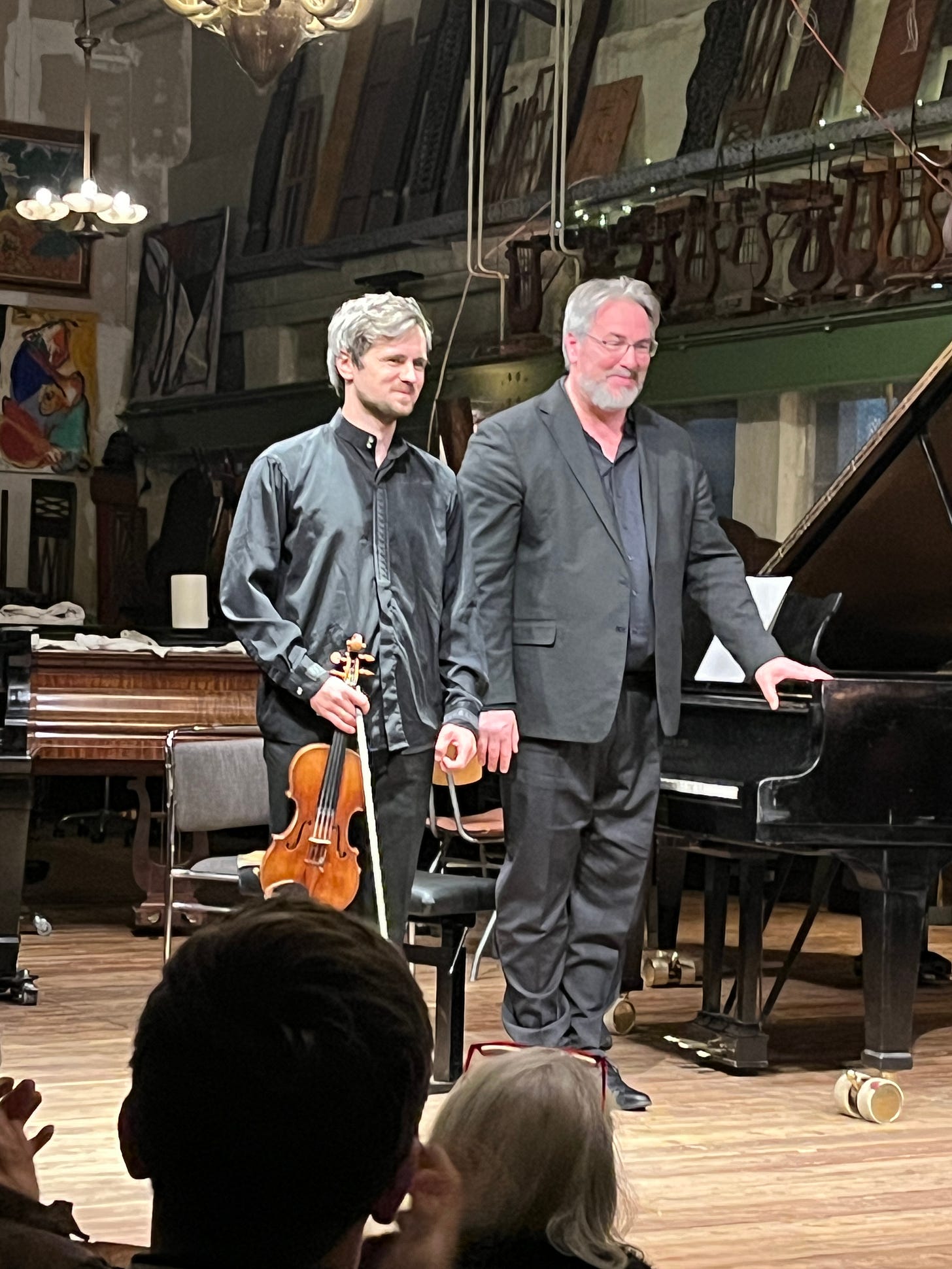Democracy is changing us - constantly
#253
My Dear Friend of Democracy,
I was at a concert the other day.
Sergei Prokofiev and Dmitri Schostakowitsch were played. Russian composers of the 20th century. Modern music. Challenging to my ears. Very challenging, to be honest.
Afterwards, I was asked if I liked the concert.
I hesitated. Because it wasn't music one can "like". No note followed the other as I expected, it was croaking and crashing, howling and groaning. Just 20th century music, brilliantly performed.
So, I didn't like the evening. On the other hand, I liked it. I really did. Because it was challenging. It was new to me in a way. And therefore, it changed me. After the concert, I was no longer the same. Probably not that much change. A bit.
Why am I telling you this?
To me, the experience of the concert symbolises, even more, it tells me how we should deal with democracy. Or maybe, more precisely, how democracy deals with us.
Here is what I mean.
In autocracies, people try to live among their kind. Separation dominates. The powerful rule over the powerless. Exclusion to strengthen power. Democracies are the opposite. In democracies, diversity dominates. Because everyone can follow their wishes. Everyone is allowed to be different. At the same time, everyone has equal rights. Therefore, democracy requires the recognition of others as equals.
In this respect, democracy is a challenge. We must allow for the other, the unknown, the unusual, the foreign. And we can only really meet the other if we dare to become someone else ourselves.
✊ Democracy is like a concert in modern music - an imposition sometimes, not always pleasant, but if we get involved, it can enrich us.
See you in Europe,
Johannes
📸 Aleksey Semenenko, Thomas Hoppe / Berlin, Germany / 10 December 2024



I’ve had a long-standing fascination with Shostakovich, mostly for his life and position in the unbelievably complex conditions under which he was working. I think he holds lessons in creativity for us no matter the system we’re inside.